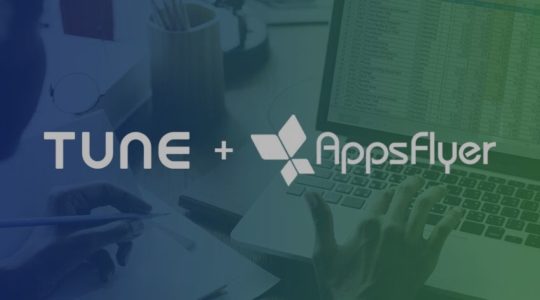
Pinterest doesn’t want affiliate links pinned. They drew a line in the sand when they first started stripping affiliate information and other variables from Amazon links. More recently, Linkshare affiliates have reported Pinterest stripping links. I haven’t heard whether other affiliate programs are also impacted or not.
While Pinterest seems to be altering destination links to prevent users from making money on pins, the action may be Pinterest’s undoing. Altering links to strip affiliate tracking information represents a modification of material posted by users, which has the potential to put Pinterest on shaky legal ground when it comes time to defend against copyright claims.
DMCA Safe Harbor Protects Service Providers
The way Pinterest, YouTube, and other user generated content sites avoid a constant onslaught of financially debilitating copyright infringement lawsuits is by abiding by DMCA Safe Harbor provisions spelled out in section 512(a) of title 17 of the United States Code. In simple terms, the whole idea of safe harbor is that an online service provider like Pinterest won’t be able to preemptively police every piece of content posted on their service. Because Pinterest and other UGC sites merely transmit the content, they aren’t liable as long as they quickly remove or disable access to material later identified to be infringing by the copyright holder.
In order to be protected by DMCA Safe Harbor, Pinterest must be viewed as a service provider.
In case you haven’t memorized the United States Code, here is title 17 section 512(a):
A service provider shall not be liable for monetary relief, or, except as provided in subsection (j), for injunctive or other equitable relief, for infringement of copyright by reason of the provider’s transmitting, routing, or providing connections for, material through a system or network controlled or operated by or for the service provider, or by reason of the intermediate and transient storage of that material in the course of such transmitting, routing, or providing connections, if –
(1) the transmission of the material was initiated by or at the direction of a person other than the service provider;
(2) the transmission, routing, provision of connections, or storage is carried out through an automatic technical process without selection of the material by the service provider;
(3) the service provider does not select the recipients of the material except as an automatic response to the request of another person;
(4) no copy of the material made by the service provider in the course of such intermediate or transient storage is maintained on the system or network in a manner ordinarily accessible to anyone other than anticipated recipients, and no such copy is maintained on the system or network in a manner ordinarily accessible to such anticipated recipients for a longer period than is reasonably necessary for the transmission, routing, or provision of connections; and
(5) the material is transmitted through the system or network without modification of its content.
Where Could Pinterest Have Problems?
There are two points that could cause Pinterest trouble. 512(a)(2) requires transmission and routing to be carried out through an automatic technical process without selection of the material by the service provider. That’s open to some interpretation, but leaving some data off of a link certainly sounds like selection of the material to me. 512(a)(5) is also noteworthy in the context of Pinterest’s treatment of affiliate links. By stripping affiliate tracking codes from a link, Pinterest is modifying the content originally posted by the person who pinned it.
It seems obvious to me that when Pinterest modifies a pin by altering the structure of a link, they stop being an online service provider facilitating users who share content and become a curator of content actively engaged in changing the way it gets shared. Put another way, changing a link could be construed as a form of editorial control.
Being perceived as an online service provider is an all-or-nothing endeavor. By modifying any content posted by users, Pinterest has the potential to be at risk for all copyright infringing content posted by users. When Pinterest alters a non-infringing pin, Pinterest could be giving image clearinghouses like Getty or Corbis ammunition to file a copyright infringement claim directly against Pinterest.
What Could Pinterest Do Instead?
Pinterest has two more appropriate courses of action for preserving their status as a service provider, though affiliates may like these options even less.
The Pinterest Acceptable Use Policy already states: [You agree not to] “Use the Service for any commercial purpose or the benefit of any third party, except as otherwise explicitly permitted for you by Pinterest or in any manner not permitted by the Terms;”
To properly maintain service provider status in the context of DMCA Safe Harbor provisions, Pinterest should either completely remove pins that violate their policy or ban the users who pin the content in the first place.
Deleting pins creates a different kind problem for Pinterest. Other users may have already Repinned or commented on content with an affiliate link. Deleting the pin removes it for the original user along with everyone else who had no idea there was an affiliate link involved. If users start seeing pins disappear, they might stop using the service.
Pinterest Should Be More Like Twitter
Affiliate links on Pinterest aren’t likely to go away. Pinterest would be smarter to approach them the way Twitter did – letting users police each other. I previously called the idea of trying to stop them a game of whack-a-mole. By modifying the links, Pinterest has increased their exposure to potential copyright infringement issues. By deleting pins or banning users, Pinterest runs the risk of frustrating users. In the long run, Pinterest would be better served to either ignore affiliate activity altogether or work with affiliates interested in using the service.
At the same time, there’s potential the damage is already done. Could a copyright infringement claim use Pinterest’s existing actions against affiliate links as a way to throw out their defense as a service provider?
Author
Becky is the Senior Content Marketing Manager at TUNE. Before TUNE, she handled content strategy and marketing communications at several tech startups in the Bay Area. Becky received her bachelor's degree in English from Wake Forest University. After a decade in San Francisco and Seattle, she has returned home to Charleston, SC, where you can find her strolling through Hampton Park with her pup and enjoying the simple things in life.




Jake, great article! Very thought provoking. Maybe all good things really do come to an end? Especially, if they’re not fluid in today’s online playground.
Great info, Jake. I’d suggest to affiliates that direct linking isn’t the best way to market your wares. This doesn’t change the DMCA issues Pinterest may face, though.
I agree that direct affiliate links from Pinterest aren’t a great strategy, but that doesn’t mean people won’t do it.
Nah, even if you were right, and you are wrong, all Pinterest needs to do is put the functionality into bookmarks, browser extensions, or even just leave it up to the editing discretion of the users, much like Wikipedia and Stackexchange allow users to edit other people’s content.
Nice try though.
Dickweed.
I’m confused how making it editable by users impacts the issue.
[…] Jake Ludinton, of HasOffers, gives us more insight here: Could Affiliate Links Kill Pinterest? […]
There are 4 safe harbors under DMCA. Transmission, Caching, Storage and Linking. Pinterest (as well as most other ISPs that do more than route traffic) will find its salvation in the Storage and Linking safe harbors. Neither of those safe harbors require that the content cannot be altered. Only the Transmission and caching safe harbors restrict content changes.
However, when an ISP automatically looks for links or otherwise examines the packets for certain content, the ISP must prove that they are only looking for information (such as affiliate links) and not the general content of the packets- an ISP with constructive knowledge or wilfull blindness to the content of the posts will not enjoy immunity under DMCA Storage and linking safe harbors. That is why most DMCA lawyers tell the ISPs not to change anything, except for those items that have already been adjudged by the courts to be OK (such as thumbnails).
The Viacom v. YouTube 2nd Circuit case also speaks to automated processes in the DMCA realm and it is likely that Pinterests stripping of the affiliate links will pass muster under that case.
Most attorneys have concerns about Pinterest’s former practice of stripping the metadata that identified the source of the Pin photos.
More info may be found at http://www.dmcahandbook.com
Thanks for the great analysis Connie!
Very interesting article… I’m very curious how the whole copyright infringement plays out with Pinterest. Check out my highlights about it here: http://markerly.com/direct.php?url=http://www.hasoffers.com/blog/affiliate-links-kill-pinterest/
[…] safe harbor by showing it controlled the user content — maybe by pointing out that Pinterest fiddles with links attached to the photographs. But that’s not a slam dunk case. Likewise, Getty could try to […]
[…] its safe harbor by showing it controlled the user content — maybe by pointing out that Pinterest fiddles with linksattached to the photographs. But that’s not a slam dunk case. Likewise, Getty could try to affect […]
[…] safe harbor by showing it controlled the user content — maybe by pointing out that Pinterest fiddles with links attached to the photographs. But that’s not a slam dunk case. Likewise, Getty could try to […]
[…] its safe harbor by showing it controlled the user content — maybe by pointing out that Pinterest fiddles with links attached to the photographs. But that’s not a slam dunk case. Likewise, Getty could try to affect […]
[…] from a protected bay by display it tranquil a user calm — maybe by indicating out that Pinterest fiddles with links trustworthy to a photographs. But that’s not a impact asperse case. Likewise, Getty could try to […]
[…] its safe harbor by showing it controlled the user content — maybe by pointing out that Pinterest fiddles with links attached to the photographs. But that’s not a slam dunk case. Likewise, Getty could try to affect […]
[…] its safe harbor by showing it controlled the user content — maybe by pointing out that Pinterest fiddles with links attached to the […]
[…] its safe harbor by showing it controlled the user content — maybe by pointing out that Pinterest fiddles with links attached to the photographs. But that’s not a slam dunk case. Likewise, Getty could try to affect […]
[…] copyrights on the site is becoming increasingly difficult as user numbers grow every day. As one writer said, it’s like a never-ending game of […]
[…] copyrights on the site is becoming increasingly difficult as user numbers grow every day. As one writer said, it’s like a never-ending game of […]
“To properly maintain service provider status in the context of DMCA Safe Harbor provisions, Pinterest should either completely remove pins that violate their policy or ban the users who pin the content in the first place.”
There is no requirement for the site, any site, to monitor links, etc.
If the site admins fail to take down the infringing in what ever form, then the site admins could find trouble.
Someone has to alert the site admins, generally the content creators.
[…] copyrights on the site is becoming increasingly difficult as user numbers grow every day. As one writer said, it’s like a never-ending game of […]
And all of this is totally dependent on ‘fair use clause’ in the first place. Oracle basically lost its copyright infringement suit against Google because of fair use clause, and also the copyrighted material was worth ZERO according to Oracle itself. All this does is make lawyers rich, once again. The group ‘Chilling Effects’ has very useful information and even pro-bono legal services for those who find themselves in a hostile ‘copyright infringment’ case, and ideally, can even get damages and costs from those who have filed the case when the use IS fair or according to affilation or manufacturer’s specifications..